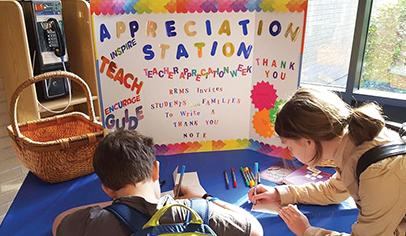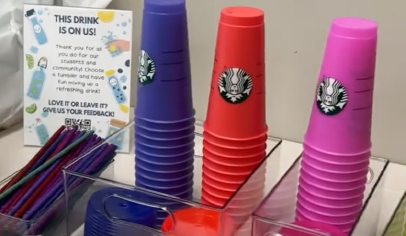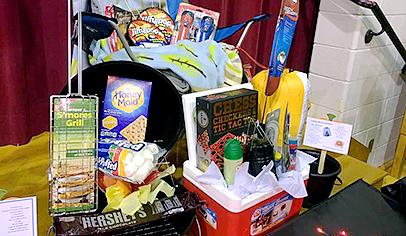Time-saving note: if your group has all the volunteers it needs and is pulling off tons of varied events all with strong success, feel free to skip this column. It’s not for you. For the other 99.72 percent of PTO and PTA leaders, I have some simple advice this month: Simplify.
Whether your group is just starting out or—more likely—you’re struggling to get the help you need and stay above water, there’s real harm in trying to be everything to every school constituency. I’m sure your school has tons of needs and your group gets tons of earnest, worthwhile requests for help. But if you try to be the solution to every challenge, then more than likely you’ll be the solution to none.
The first step in doing more is doing less. And if you decide to do less, then it’s important that you focus on the most relevant items: those that fit directly with your mission, those where you’re highly likely to succeed, and those that can most effectively and publicly establish your reputation as a sane, realistic, effective group that values volunteers’ time and makes a visible difference at school.
Far too many groups give off the opposite impression. We take on too many tasks (because we are really bad at saying no); we are in a constant state of pleading for help; and we wind up scrambling to do a just-OK job on dozens of different activities.
Do parents see a group that’s trying hard, and so give you a break (along with an offer to help)? No, they actually see a group that’s frazzled—and frankly, not all that successful. And because that’s not the kind of group that has new volunteers clamoring to get involved, we wind up back in the exact same cycle next year and the year after. It’s painful and sad, but it’s reality.
To repeat: The answer is to do less, better.
Do you have activities that are placed on your calendar every year out of habit, with no discussion of whether the event is still effective or whether you have enough volunteers to succeed? Do you run five or six fundraisers every year? (Why?) How often, if ever, does your group say no to a new idea? Have you canceled an event for lack of volunteers, or do you find a way to get everything done no matter what?
These are the questions you and your fellow leaders need to ask.
Do you have a couple of events that are modest hits and that fit your mission and your school’s needs really well? Make it a point to make those events even bigger priorities and execute them even better. At the same time, have the difficult discussions this and every year about how many efforts you can pull off well (and sanely) with your current volume of reliable volunteers.
The real tough part: Get OK with canceling or not scheduling events that don’t fit. You’ll survive and your school will, too. Three well-executed efforts are far better than six that flail. Most parent group leaders have a hard time accepting that. It feels like failure or giving up. It’s not.
Successful events and sane schedules and sane volunteers attract new volunteers. Increasing your core group of volunteers is step one to increasing your capabilities as a group. If you can add some new faces, then you can pump up an event or expand your efforts a bit at a time.
Volunteers who sacrifice unbelievable amounts of time on behalf of their schools (like so many of our PTO Today readers) are amazing and generous. But relying on just those crazy volunteers to run a whole group for a whole year or more just isn’t sustainable. You aren’t Supermom or Superdad, and your group will be better off when you and your fellow superheroes take off your capes, slow down, and do less.
It’s the only way to do more.
























